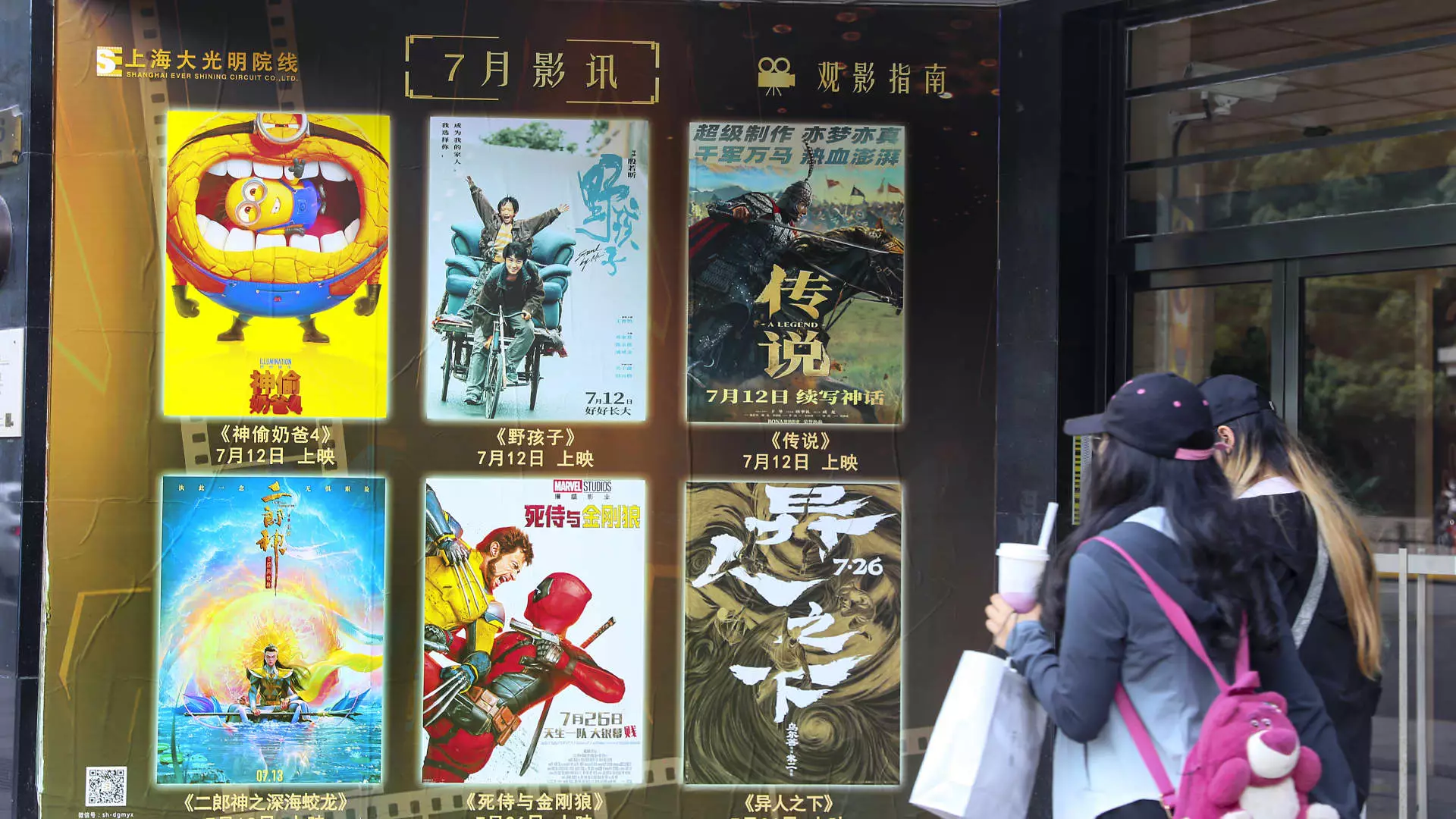Hollywood has long been synonymous with success, creativity, and cultural impact. Yet, as the industry faces an intensifying trade war initiated by President Donald Trump—escalating tariffs on Chinese imports—the glimmer of its golden age is being tarnished. The retaliatory measures from China, restricting the number of American films showcased in theaters, highlight the fragility of Hollywood’s once-coveted market share in the world’s most populous country. As the dust settles on this complex trade battle, it invites a careful examination of the factors guiding Hollywood’s decline in the Chinese market—not merely an issue of tariffs but one that indicates a larger evolutionary shift in global cinema dynamics.
The Rise of Chinese Cinema: Homegrown Talent Triumphs
Once a bastion for American films, China has experienced a robust boom in local filmmaking. Its increasingly sophisticated technology has empowered domestic filmmakers to produce blockbusters that resonate deeply with local audiences. These homegrown films prioritize cultural authenticity and emerging narratives that reflect the values and aspirations of Chinese society. The 2019 success of nine American films surpassing the $100 million mark in China now seems like a distant memory, particularly as the recent accomplishment of “Ne Zha 2” showcases domestic films breaking records that were once assigned to Hollywood. The preference shift toward local productions signals a profound change in audience preferences—an evolution that could very well signal Hollywood’s diminishing returns in a market that was once a reliable cornucopia.
Economic Implications of Tariffs: A Double-Edged Sword
The conversation around tariffs has been largely framed as a battle for greater economic justice between nations; however, the implications for Hollywood reveal a stark reality that many in the industry may not yet realize. As Ann Sarnoff, the former CEO of Warner Bros., highlights, rental rates for displaying films in Chinese theaters have already markedly decreased, making them less favorable for American studios. When tariffs were instituted, the pressures mounted further, aggravating the economic landscape that Hollywood must navigate. While political leaders frame this trade war as a feasible negotiation strategy, many industry insiders foresee considerable long-term fallout—both financially and culturally.
The Subtle Power of Nationalism in Cinema
A rising sense of nationalism has also contributed to the declining appeal of Hollywood films in China. As Chinese consumers increasingly embrace films that reflect their own cultural narratives, studios that fail to adapt their content run the risk of alienating themselves from a key audience. This trend is not unique to China; it’s echoed in various countries worldwide as they vie for space in an ever-globalizing entertainment landscape. Hollywood must acknowledge that audiences seek stories that mirror their own experience—even when marketed globally. An insistence on prioritizing a universal tale often results in missing nuanced connections with diverse demographics.
The Aftermath of Trade Agreements: A Missed Opportunity
The expiration of the U.S.-China Film Agreement in 2017, which allowed 34 American films to debut in China annually, has further complicated matters for Hollywood. As pointed out by expert Aynne Kokas, trade in film was sidelined during previous tariff discussions, leading to a rapid growth in the Chinese box office that has largely bypassed American studios. This lack of foresight speaks volumes about the industry’s understanding of its place in the ever-evolving global market. Hollywood cannot afford to remain passive while the landscape shifts beneath its feet, and without proactive strategies, the trend of declined box office performance is likely to continue.
The Real Costs of Currency Fluctuations
Beyond tariffs, another lurking threat to Hollywood’s economic future is currency fluctuation. While a weaker dollar may appear advantageous for gross revenue from international markets, it simultaneously elevates the costs of doing business abroad. Industry experts purport that the true strain from the trade war does not solely stem from tariffs but involves complex economic interactions that are not easily surmounted. The aftermath is a generation of Hollywood executives grappling with volatility and uncertainty—conditions that are antithetical to an industry that thrives on predictability and audience engagement.
In this theater of global commerce, the stakes are high, and the ramifications for Hollywood extend far past the confines of film studios. The industry grapples with a shifting cultural and economic landscape that challenges its long-held notions of dominance and success. While Hollywood will undoubtedly endure, the trade war encapsulates the urgency for adaptation—an invitation for reinvention rather than mere survival.

